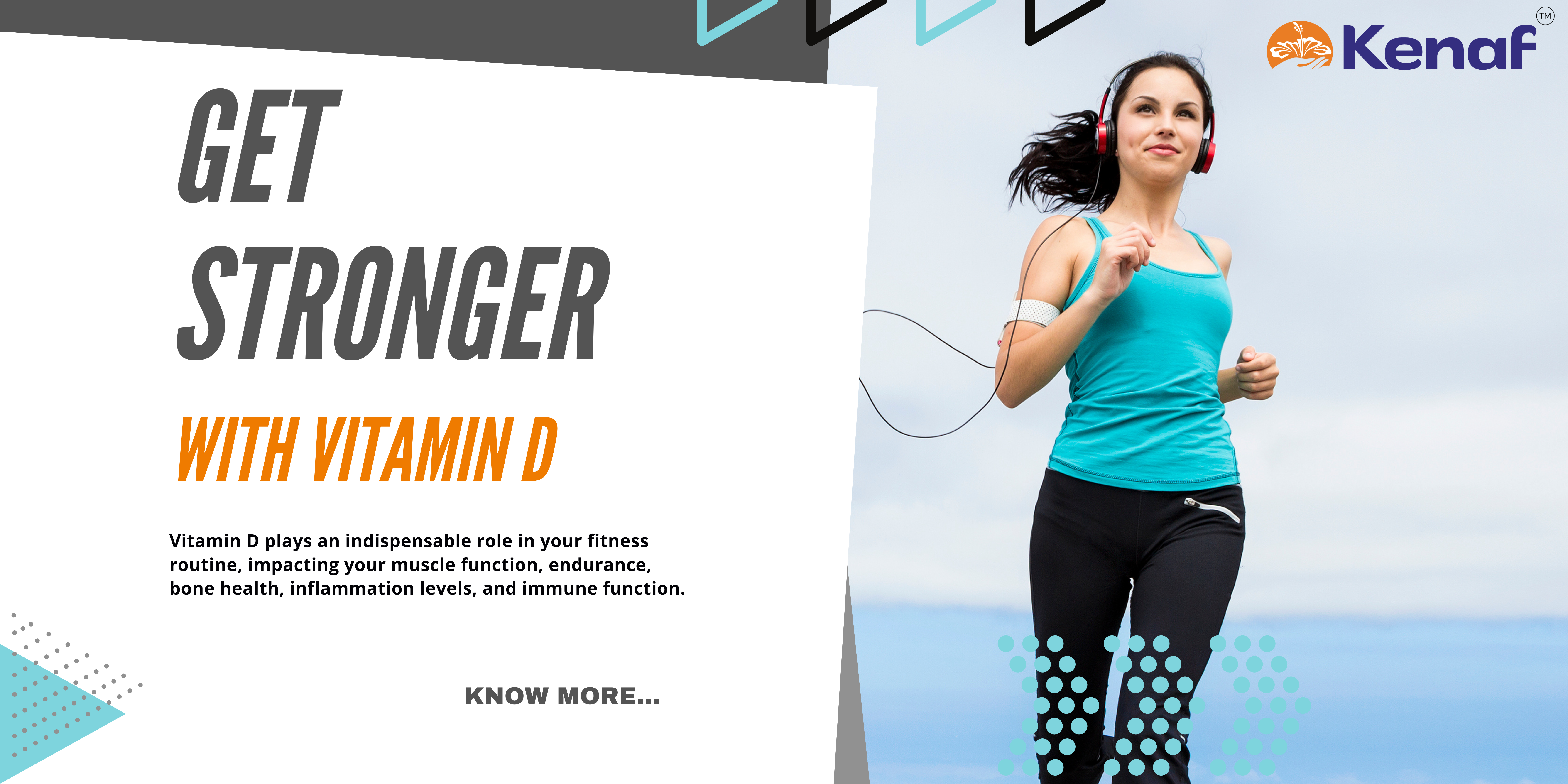
Key Pointer from this blog post:
Vitamin D plays an indispensable role in your fitness routine, impacting your muscle function, endurance, bone health, inflammation levels, and immune function. Incorporating strategies to maintain adequate Vitamin D levels is crucial for optimizing your performance, reducing the risk of injuries, and ensuring overall well-being. From sun exposure to dietary sources and supplements, there are various ways to increase your Vitamin D intake. Prioritize this vital nutrient in your fitness journey, and you’ll reap the benefits of improved physical performance and long-term health.
Introduction:
In the world of sports and fitness, optimizing performance and preventing injuries are top priorities for active individuals as well as athletes. While physical training and proper nutrition are commonly emphasized, one factor that often goes unnoticed is the role of vitamin D. Recent research published in Sports Health highlights the significant impact of vitamin D on musculoskeletal health and its potential influence on injury prevention and recovery. In this blog post, we will explore the findings from the study and shed light on the importance of maintaining sufficient vitamin D levels for athletes and active individuals.
In this blog post, we will explore the importance of Vitamin D in your fitness journey and how you can ensure you’re getting enough of it.
The Link Between Vitamin D and Musculoskeletal Health:
The study underscores the critical role of vitamin D in supporting optimal muscle function and overall musculoskeletal health. Adequate vitamin D levels have been associated with reduced inflammation, muscle pain, and some time muscle weakness, while promoting muscle protein synthesis, ATP concentration, strength, and various performance metrics such as jump height, jump velocity, and jump power. By increasing exercise capacity and physical performance, athletes can enhance their training outcomes and achieve better results.
The Benefits of Vitamin D in your routine Fitness:
- Enhanced Muscle Function: Vitamin D is essential for optimal muscle function and strength. It helps regulate calcium absorption, a mineral vital for muscle contractions. Sufficient Vitamin D levels promote better muscle control, reducing the risk of injuries and enhancing overall performance during workouts.
- Improved Bone Health: Vitamin D aids in calcium absorption, which is crucial for maintaining strong and healthy bones. Engaging in high-intensity workouts and strength training puts stress on your bones, and adequate Vitamin D levels help prevent bone density loss and reduce the risk of fractures or stress injuries.
- Increased Endurance: Vitamin D deficiency has been linked to decreased muscle strength and endurance. By maintaining adequate Vitamin D levels, you can potentially improve your endurance capacity, allowing you to push yourself further during workouts and achieve better results.
- Reduced Inflammation: Regular exercise can lead to temporary inflammation in the body. Vitamin D has anti-inflammatory properties that help reduce inflammation, aid in muscle recovery, and alleviate exercise-induced soreness. This allows you to bounce back quicker after intense training sessions.
- Enhanced Immune Function: Engaging in intense workouts can temporarily weaken your immune system. Vitamin D plays a crucial role in maintaining a healthy immune system, reducing the risk of infections and promoting overall well-being. By ensuring sufficient Vitamin D levels, you can support your body’s defense mechanisms, keeping you active and consistent in your fitness routine.
Ways to Increase Your Vitamin D Levels:
- Sun Exposure : The most natural way to boost your Vitamin D levels is through sunlight. Spend around 15-30 minutes in the sun each day between 10 am to 3pm. However, be cautious about excessive sun exposure, as it can lead to sunburn and skin damage.
- Dietary Sources: While it’s challenging to obtain sufficient Vitamin D through diet alone, incorporating certain foods can contribute to your overall intake. Fatty fish like salmon and mackerel, fortified dairy products, eggs, and mushrooms are good sources of Vitamin D. Consider including these in your meals to support your Vitamin D levels.
- Supplements: If you live in areas with limited sunlight or have difficulty meeting your Vitamin D requirements through natural sources, supplements can be an effective option.
Kenaf’s Vitamin D mouth dissolving films contains natural Vitamin D 2000 IU which can be consumed anywhere and does not require water to swallow as they dissolve instantly on the month making them easy to swallow. Mouth dissolving Vitamin D films are sugar free and a convenient way to maintain your serum Vitamin D levels and it may be best if you can get in the routine of taking your Vitamin D supplement with a nutritious breakfast.
Disclaimer:
Thank you for reading our blog. If you have any questions or concerns, please contact us through our website.
The information provided on this blog is for general informational purposes only. The information provided on this blog is not intended to be a substitute for professional medical advice, diagnosis, or treatment. Always seek the advice of your physician or other qualified health provider with any questions you may have regarding a medical condition. Never disregard professional medical advice or delay in seeking it because of something you have read on this blog.
Reference:
- Sports Health. 2012 Nov; 4(6): 496-501. doi: 10.1177/1941738112461621
- https://journals.sagepub.com/doi/10.1177/2047487318807279





[…] The Power of Vitamin D: […]